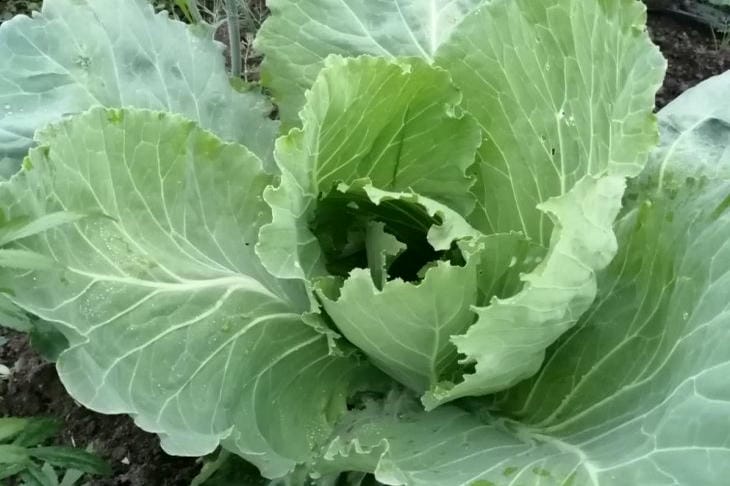What to do if instead of strong heads of cabbage you see only a loose rosette of leaves?
This problem can have several causes, and it is important to understand them in order to save the crop.
Wrong variety
Not all varieties of cabbage form dense heads. Early varieties, for example, are intended for obtaining greens and young heads.
Therefore, before planting, it is important to carefully study the characteristics of the selected variety.
Lack of nutrition
Cabbage is a nutritionally demanding crop. A lack of nitrogen, phosphorus or potassium can cause poor head formation.

Regular fertilizing with complex mineral fertilizers will help solve this problem.
Violation of the watering regime
Cabbage needs regular and abundant watering, especially during the period of head formation. Lack of moisture can lead to heads being loose and poorly formed.
Pests and diseases
Cabbage pests such as cabbage fly, aphids or flea beetles can also cause poor head formation. It is important to detect pests in a timely manner and take measures to destroy them.
Unsuitable soil
Cabbage prefers fertile, loose and well-drained soil. Heavy clay soil or acidic soil can negatively affect the development of plants and the formation of heads.
Before planting cabbage, it is recommended to improve the soil structure by adding sand, compost or humus, and, if necessary, apply lime.
Conclusion
To get a good harvest of cabbage, you need to pay attention to all aspects of its cultivation: choosing a variety, preparing the soil, fertilizing, watering and protecting against pests and diseases.
Only a comprehensive approach will allow your plants to form strong and juicy heads of cabbage.








